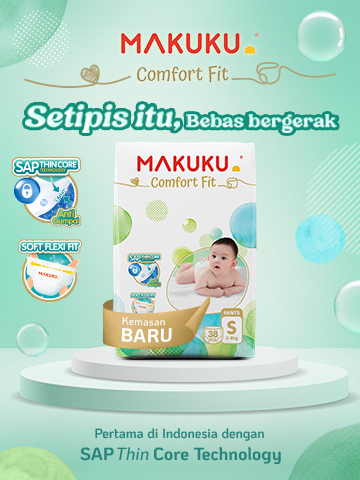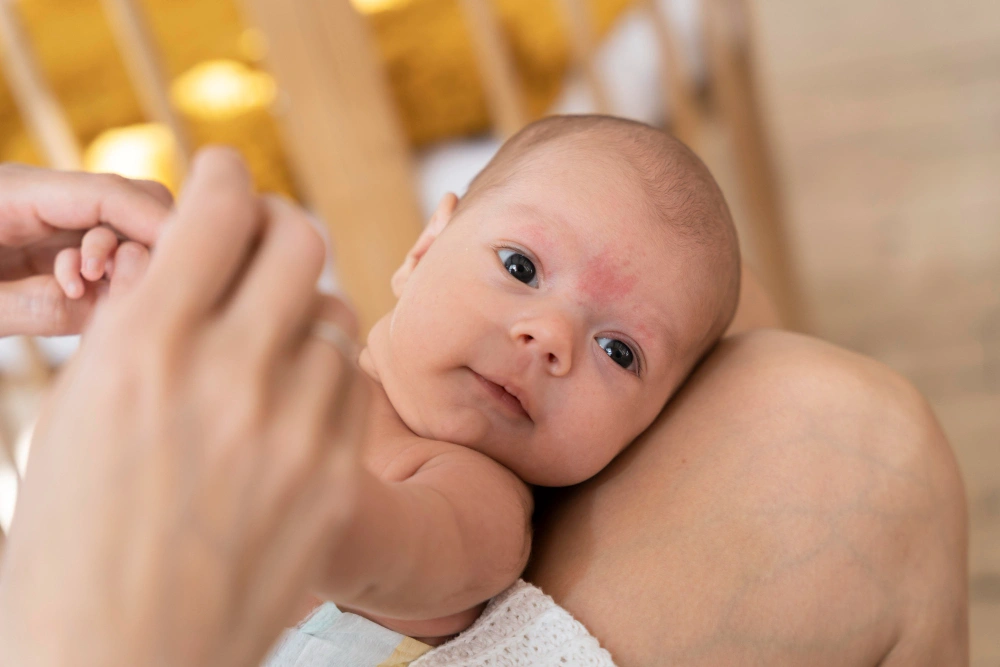
Moms, pregnancy, especially in the first trimester, often brings many changes, both physical and emotional. One thing that often causes concern is the appearance of discharge during early pregnancy. Is this normal? Is it dangerous for Moms and the Little One? Let's discuss it thoroughly with medical explanations and practical tips.
Causes of Vaginal Discharge During Early Pregnancy
During early pregnancy, a mother's body experiences a surge in progesterone and estrogen hormones. These changes increase blood flow to the pelvic area, resulting in more vaginal fluid production. Here are some common causes of discharge in the first trimester:
- Hormonal changes in pregnancy that trigger increased vaginal fluid production.
- Increased blood flow to the reproductive organs to support the health of the uterus and fetus.
- Changes in vaginal pH that make the feminine area more moist.
- Candida albicans fungal infection that causes itching, thick, and milky white discharge.
- Bacterial vaginosis is caused by an imbalance of good and bad bacteria in the vagina.
- Sexually transmitted infections such as chlamydia, trichomoniasis, or gonorrhea can cause discharge with an unpleasant odor or mixed with blood.
- Cervical irritation due to hormonal changes or sexual intercourse during early pregnancy.
So, most vaginal discharge is indeed normal, but Moms still need to know which characteristics are normal and which are signs of danger.
Characteristics of Normal Vaginal Discharge During Pregnancy
Not all vaginal discharge is dangerous. There is a difference between normal discharge and discharge due to infection. Let's take a look at the details:
1. Color
Normal vaginal discharge during early pregnancy is usually clear to milky white. This color appears due to increased estrogen hormones and blood flow in the vaginal area. Clear discharge indicates that the fluid is still healthy, while milky white discharge is usually the result of dead cells and natural mucus from the cervix.
If Moms notice thick yellow, green, or brownish discharge, it could be a sign of a yeast infection, bacteria, or even blood spots from cervical irritation.
2. Texture
Normal discharge is thin or slightly thick but remains homogeneous (does not clump). This texture helps clean the vagina naturally and maintain moisture.
Conversely, if the texture is clumpy like pieces of cheese, it often indicates a Candida albicans yeast infection. If the discharge is foamy, it could be a trichomoniasis infection.
3. Odor
Normal vaginal discharge does not have a strong odor. Sometimes there is a slight characteristic odor, but it is not disturbing. This odor is normal due to the natural cleansing process of the vagina. If you smell a fishy or pungent odor, it could be a sign of bacterial vaginosis or a sexually transmitted infection. A pungent odor is also sometimes accompanied by itching or burning.
4. Taste
Normal vaginal discharge does not cause itching, soreness, or heat. This discharge should not interfere with your daily activities.
If you experience itching around the vagina, pain during intercourse, or soreness when urinating, these are signs of abnormal vaginal discharge that need to be examined further.
5. Frequency and Volume
In the first trimester, the fluid may feel more abundant compared to before pregnancy. This is normal because the hormone progesterone makes the cervical mucus thinner to protect the fetus from infection.
However, if the volume is so much that it makes the underwear constantly wet or continuously discharges, it is advisable for Moms to consult a doctor. It could be an infection or early amniotic fluid leakage.
How to Overcome and Prevent Vaginal Discharge During Early Pregnancy
In addition to regular consultations with an obstetrician, Moms can take the following simple steps to maintain the cleanliness of the intimate area:
- Use cotton underwear that absorbs sweat.
- Avoid overly tight pants to maintain good air circulation.
- Change underwear regularly if it feels damp.
- Do not use scented feminine cleansers as they can disrupt the vaginal pH.
- Maintain a healthy diet by consuming vegetables, fruits, and nutritious foods.
- Increase fluid intake (water) to keep the body hydrated.
- Conduct regular check-ups with the obstetrician to monitor the health of Moms and the little one.
When to See a Doctor?
Moms, there is no need to panic every time you see discharge. However, there are certain conditions that need to be addressed immediately by an obstetrician or midwife, such as:
- Vaginal discharge with a strong odor and accompanied by itching.
- Green discharge, thick yellow, or mixed with blood.
- Vaginal discharge accompanied by pain in the lower abdomen or during intercourse.
- The volume of fluid is so much that it makes the underwear constantly wet.
- Accompanied by other symptoms such as fever, pain during urination, or the presence of blood spots outside the pregnancy check-up schedule.
Doctors usually perform a physical examination, laboratory tests (vaginal swab), and prescribe antifungal or antibiotic medication according to the cause. Never use over-the-counter medication without a prescription, Moms, as it can pose a risk to the Little One's health.
In addition to maintaining Moms' health, the comfort of the little one is also important. One option Moms can choose is MAKUKU Slim, a premium diaper with SAP Thin Core technology that can lock in maximum moisture, keeping the surface dry and comfortable.
Its outstanding features include:
- Only 1.6 mm thin, allowing the Little One to move freely.
- Belly Button U-Shape, protects the umbilical cord of a newborn baby
- Urine indicator, so Moms know when to change the diaper.
- 3D surface and air cavities, maintain circulation and reduce the risk of diaper rash.
- Anti Clump: diapers remain thin even after prolonged use.
Moms, vaginal discharge during early pregnancy is actually normal due to hormonal influences and body changes in the first trimester. However, if the discharge is accompanied by odor, itching, color changes, or mixed with blood, it is advisable to consult an obstetrician immediately. By maintaining the cleanliness of the intimate area, a healthy diet, and regular check-ups, Moms can ensure the health of both themselves and the little one.
Reference
- American Pregnancy Association. (2023). Vaginal Discharge During Pregnancy.
- Mayo Clinic. (2022). Pregnancy Discharge: What’s Normal, What’s Not.
- WHO. (2021). Sexually Transmitted Infections and Pregnancy.
- Indonesian Obstetrics and Gynecology Association (POGI). Reproductive Health Guidelines for Pregnant Women.







